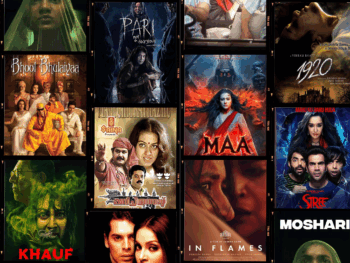
Taking a closer look at how it’s becoming the go-to place to air all sorts of dirty laundry.
Whether it’s a dramatic post-breakup rant in your Facebook news feed, a heated Twitter spat, or a meme-meant-to-jab on Instagram, social media has become an oft-used communication tool during conflict and the place to air dirty laundry.
In 2012, Kim Kardashian’s brother, Robert, took to the Twittersphere to confront his now ex-girlfriend Rita Ora saying she had slept with “no less than 20 other men,” to which Ora replied “Rob’s d—k was wack, I had to go get it somewhere else.”
Last year, U.K. rapper Maganthi Maya Arulpragasam, also known as M.I.A., released an astonishing series of emotionally-fueled tweets about her custody battle with ex-fiancée environmentalist Benjamin Bronfman.
“BEN you cant take my son away from me . . . Just because you have money doesnt mean you have the right . . . THE BRONFMANS WANT TO TAKE MY CHILD AWAY FROM ME. WHAT KIND OF S* IS THAT? THEY NEVER SEE HIM,” she tweeted.
Meanwhile, the rest of us are observing and emulating.
“Everybody has become a producer and is no longer a consumer anymore,” says Dr. Wendy Walsh, a relationship expert and author at www.drwendywalsh.com. “The generation who is under the age of 35 grew up on technology, as they became technological savants. At the same time, [they have] reduced their ability to have face-to-face communication. As a result they become more hesitant and unskilled in how to have an emotionally intimate relationship. The explosion of social media means everybody can have a soapbox and a platform.”
We all have that friend that publicly proclaims dissatisfaction with their partner on a semi-regular basis or that relative uses social media to complain about whomever has upset them that day.
“People forget when they are sitting at the keyboard that the audience is listening,” Dr. Walsh says. “They cannot adequately assess their audience. This is why humour plays so terribly online; people think they are being sarcastic or ironic in their tweets and it comes off as dead serious.”
According to U.S., U.K. and Canadian law, you can be held liable for a defamatory tweet which is considered twibel (Twitter libel). Though the legalities vary per country, if what is said damages someone’s reputation it is slanderous or libelous.
U.S. legislation indicates if you retweet a libelous tweet you are unlikely to be held accountable but if you modify a tweet it could constitute libel. Whereas in the U.K., a retweet can leave a party liable unless they can prove it’s true.
“Anger is always a mask for hurt feelings. Publicly shaming on social media is a cop out,” says Dr. Walsh. “We are losing the ability to negotiate with each other, to explain our emotional side, our internal dialogue, to the person we want to grow a relationship with. We’re busy trying to grow audiences instead of relationships.”
In New York Times bestseller When Crucial Conversations Go Social: How to Handle Heated Discussions via Social Media a poll of 2,700 people reveals social networks are becoming increasingly hostile. Two out of five participants admit to blocking, unsubscribing or unfriending due to an argument they had via social media, while 81 percent say emotional conversations held on social media are most often unresolved.

SocialEtiquette
There are few a simple steps to take before you start typing away. “Stop, breathe and think,” Dr. Walsh says. “Escort the negatives outside of your head and create an awareness in the here and now.”
Evaluate. If you are going to respond, regram or retweet check your motivation. Is it to gain more followers? Or to inform them? A positive and well thought out response when engaging others fuels less drama.
Will You Regret It? If you think there’s even a slight chance of regretting it later, don’t post it. By the time you go back and delete a post it may have already been reposted, shared or saved.
Resolve. If there’s a conflict, try to resolve it face to face or by phone instead of airing your dirty laundry on social media.
Be Clear. Remember that things like irony are hard to detect when someone can’t hear you speaking. So think about what you’re typing and how someone might interpret it differently.
BY TESSA JOHNSON
PUBLISHED IN THE FASHION & STYLE ISSUE, FALL 2014
COMMENTS
YOU MAY ALSO LIKE
Newsletter Sign Up
Subscribe to our FREE newsletter for all of the latest news, articles, and videos delivered directly to your inbox each day!

















































































































